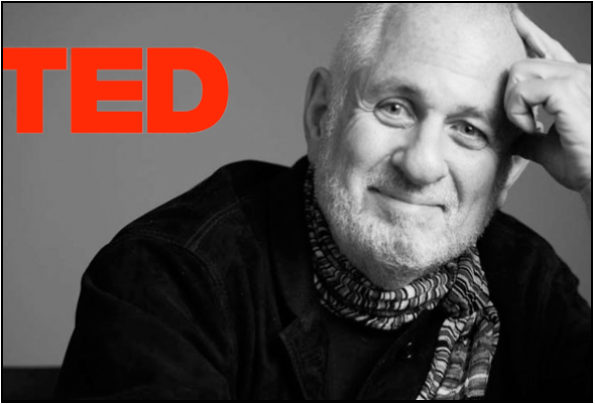Don’t waste your time watching TED talks

Richard Saul Wurman: Founder of TED talks
May 5, 2022
TED Talks reduce the idea of education to a shallow, oversimplified and conceited form of entertainment. They leave people with the essence of being educated without any of the real knowledge to show for it. They use psychological trickery to make you feel like you have learned something, when you really have not retained anything. TED Talks are an act of showmanship on par with circus performers, an exaggerated form of “Hey mom look at me!”
TED (Technology, Entertainment, and Design) was not always the uninspired and trivial production that it is today. Richard Saul Wurman founded TED in 1984 in the hopes of creating an untelevised, intellectual and professional conference to discuss the future of technology. 38 years later, the organization has grown into a $65 million monster organization, and expanded into different variations of the format with TEDx and TED-Ed.
British businessman Chris Anderson, and now owner of the TED brand, is to blame for TED’s global popularity. Anderson took over the operation in 2001, changing the format of the TED conference to be compatible with the internet (TED.com). Anderson may have been able to gain a larger audience and profit than Wurman, but in doing so TED strayed dramatically from the vision originally held for the conferences.
Richard Wurman has publicly criticized the dumbed-down and overly curated TED talks that Anderson has produced, saying that if TED wants to remain relevant, it needs to get back to its roots. “The policy was to give a speech you haven’t given before, not to rehearse it…Now every speech is edited before it goes online. Everything is rehearsed 100 times. People memorize them,” Wurman said (mlive.com). He elaborates that a lot of TED talks have become far too oversimplified to ever make any real difference in the world, but what really bothers him is the atmosphere of self-promotion that is now a staple of TED. “ Part of the basic premise — the guiding principles of TED for 18 years — was not to have those people…anybody who sells a charity from the stage, who sells a product from the stage, a book from the stage; who is a CEO or a politician.”
Oftentimes, TED speakers oversimplify a solution to the point of it being ridiculous. A great example of this being Amy Cuddy’s TED talk on body language in which she insinuates that all of your life’s problems might be solved with better posture, or Terry Moore’s TED talk on how to tie your shoes (which is literally just about how to tie your shoes).
One of the worst examples of a TED talk comes from fashion designer Jessi Arrington in 2016. Not only did she completely oversimplify and disguise the topic of overconsumption, but she actually said, “ let me tell you about this CRAZY thing called a ‘thrift store’. You can buy — get this — used clothes! And they’re totally cheap. Who even knew?! Wait, poor people?” (TED.com)
That’s not to say there aren’t a few TED talks out there with real merit. One of the most popular is Ken Robinson’s argument about the importance of creativity in a changing world, citing that creativity is as important as literacy in a classroom. But did people really need to pay $10,000 a seat to hear about it? (businessinsider.com)
Some of the most brutal critiques of the TED organization ironically comes from a TED talk entitled: What’s wrong with TED talks? This debate was led by Benjamin Bratton, an American sociologist and philosophical theorist. In his TEDx talk Benjamin repeatedly called out the hypocrisy and inefficiency of TEDs programs, at one point stating “I think TED actually stands for: middlebrow megachurch infotainment.” One of Bratton’s best arguments against the TED format is the way in which TED talks often stay within a safe-zone of talking very broadly about problems and giving very broad solutions to them, without enacting any real change. TED talks are designed to trick people to pay less attention to the real issues discussed, and feel better about themselves, Bratton says “It diverts your interest, enthusiasm and outrage until it’s absorbed into this black hole of affectation.” (theguardian.com)
TED talks cannot be justified as a suitable education resource—even their own creator thinks they are irrelevant these days! Teachers please stop forcing students to watch these faux-educational videos and look for a better teaching resource instead. Try some TED alternatives like The Moth which is a much more intimate and diverse storytelling source that focuses on real people instead of big time CEOs and politicians, or just look for videos that actually teach material like Crash Course, PBS, and Khan Academy.